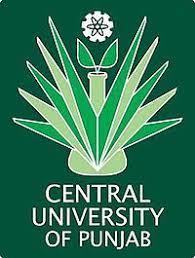This doctoral program aims to educate students to become fully qualified researchers. Graduates can then pursue careers in academia, national labs, and industry. Many of these graduates work in biotechnology companies or are currently in the midst of research. As a newer field, it is crucial for individuals who want to pursue a career in this field to gain the necessary skills and knowledge to enter the field.
A Ph.D. in Microbial Biotechnology is a multidisciplinary doctorate in biotechnology, which involves research in various areas of microbiology. This field is rapidly expanding as it focuses on understanding cellular processes and developing new cures. However, a Ph.D. degree in this field does not necessarily require a career in a pharmaceutical company. There are numerous opportunities for graduate students in this field.
A Ph.D. in Microbial Biotechnology can lead to a career in research and development. In addition to focusing on biotechnology, it can also lead to an advanced position in the field. Ph.D. programs in this field are highly competitive and can open a door for careers in a range of fields. It is not necessary to work in a medical company to pursue a Ph.D. in the field.
Ph.D. in Microbial Biotechnology Eligibility
Candidates who want to take admission in Ph.D. Microbial Biotechnology must have a post-graduate degree in Microbial Biotechnology and its relevant discipline with at least 55% marks from a recognized university and must have passed the national level entrance examination or university level entrance examination. National level entrance exams like UGC NET / UGC CSIR NET / GATE / SLET or University entrance exam consisting of written tests and personal interviews.
Benefits of a Ph.D. in Microbial Biotechnology
A Ph.D. degree in Microbial Biotechnology is valuable for many reasons. It helps you land a good job in the field. These professionals can take on leadership roles in a research lab, conduct research in the field, or teach undergraduate classes. They may also be able to transition into non-research roles. Some Ph.D. holders work in scientific publishing or the business side of a biotechnology company.
A Ph.D. in Microbial Biotechnology prepares students to work as independent scientists. Their coursework can focus on host-pathogen relationships, inflammation, immune responses, and vaccine development. They can also study molecular parasitology and retrovirology. A graduate with a Ph.D. can apply for university professorships. A master's degree in Microbial Biotechnology allows students to pursue a Ph.D. in the field.
A Ph.D. in Microbial Biotechnology allows you to be a researcher and engineer. This field can provide the world with genetically modified crops and biofuels, but it requires extensive training. A Ph.D. in Microbial Microbiology or a related area of science will increase your earning potential and flexibility. You can use your doctorate to pursue your passion for biotechnology. You can work as a research assistant or a research associate for a few years, then become the lead scientist of your own studies. If you are good at teaching, you can end up teaching as a university professor.
The Career and Job Opportunities of a Ph.D. in Microbial Biotechnology
The scope of work and the learning must be well-defined. A career can lead to many different things. Many biologists use their undergraduate degrees to pursue professional training, such as medical school, veterinarian school, or dental school. There are also many opportunities for higher-level positions in microbiology. These positions often require extensive research, teaching, and executive-level responsibilities.
There are a variety of career options for graduates with this advanced degree. Those pursuing a Ph.D. may work in research, teaching, industry, or government research. Some might choose a career in the clinic, where they could use their skills to help people in the medical field. Others might be involved in the development of vaccines and other products. The Microbial Biotechnology program is one of the most popular in the United States.
A Ph.D. in Microbial Biotechnology enables a person to work in medical, scientific, and government research. A faculty member with a doctorate in microbiology can oversee research projects, secure funding, staff the research project, and advise students. A faculty member can hold a variety of positions, from teaching undergraduate and graduate students to serve as an executive in the government.
The Future Scope of a Ph.D. in Microbial Biotechnology
A doctoral degree in microbiology or biotechnology will open up several career opportunities. You will be able to work in a pharmaceutical company or a lab. A Ph.D. in this field is required for many positions in the health care industry. You may even be able to become a university professor. There is a huge demand for individuals with this degree. The following is a look at the future scope of a Ph.D. in Microbial Biotechnology.
After earning your Ph.D., you will be well-prepared for a variety of careers. Many graduates will be able to work as academic professors or in biotechnology firms. With this degree, you will be able to create your own research projects. Your research skills will help you land the best job opportunities. You will also be able to teach undergraduate and graduate students. If you want to work in government, you may want to consider a career in biotechnology.
Getting your Ph.D. in biotechnology is a good way to enter this growing industry. The biotechnology industry is rapidly growing and offers fascinating career opportunities. In the United States, more candidates are pursuing core research or a career in this field. A Ph.D. in biotechnology can help you make a big impact in your chosen field. If you are interested in this field, you should pursue a Ph.D. in microbiology.
Ph.D. Research Programme duration
The Ph.D. in Microbial Biotechnology course is a minimum of 3 years and a maximum of 5 in duration. This depends on the university offering the course.
Fees for research program for Microbial Biotechnology
The average fee for Ph.D. in Microbial Biotechnology degree is between INR 50000 and INR 500000.
 5 Years
5 Years
 PhD
PhD
 Research
Research














 back
back